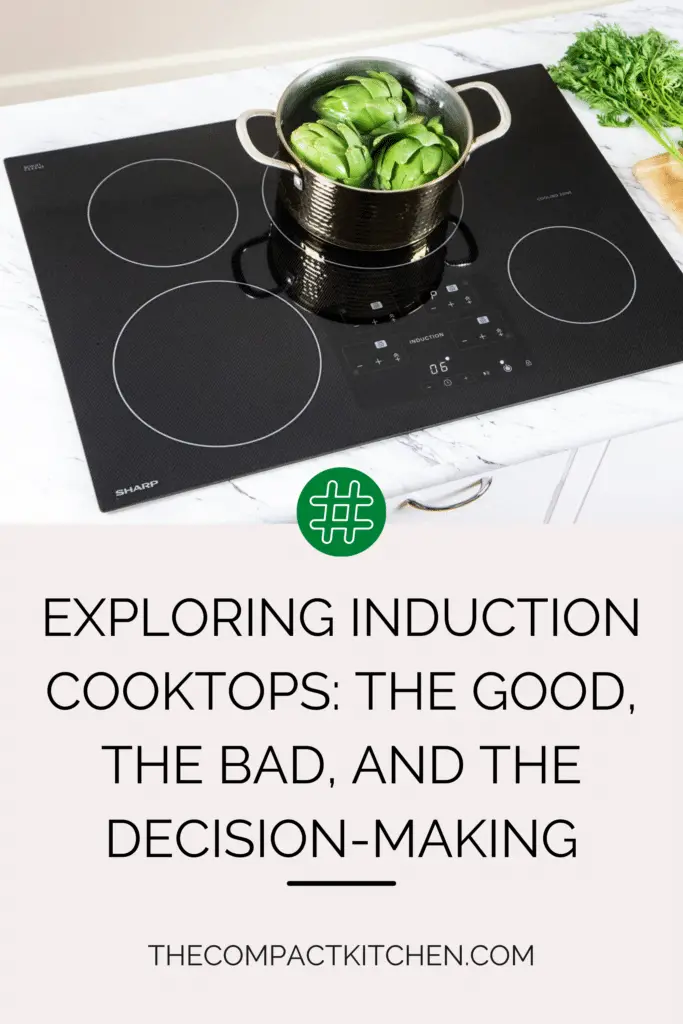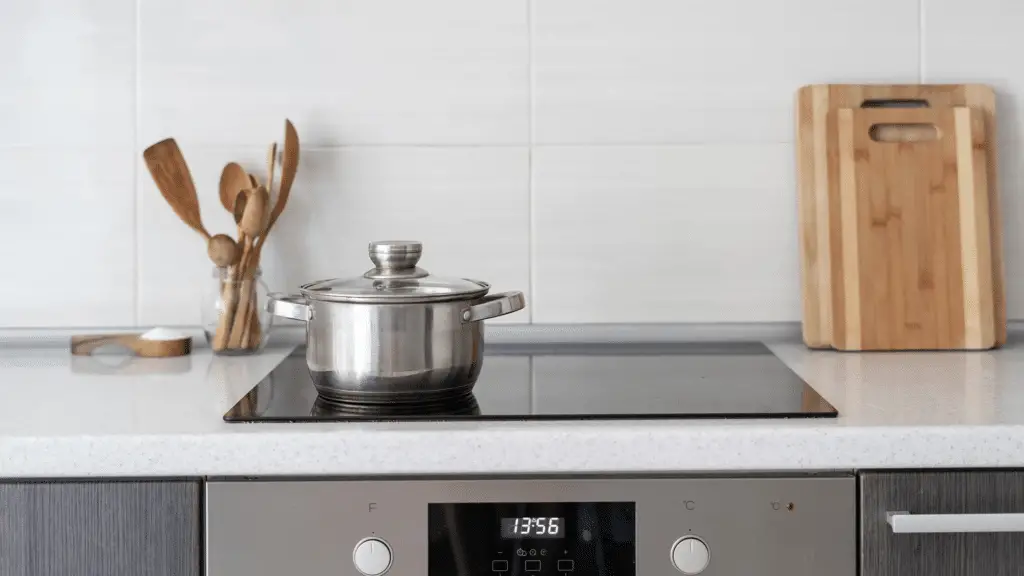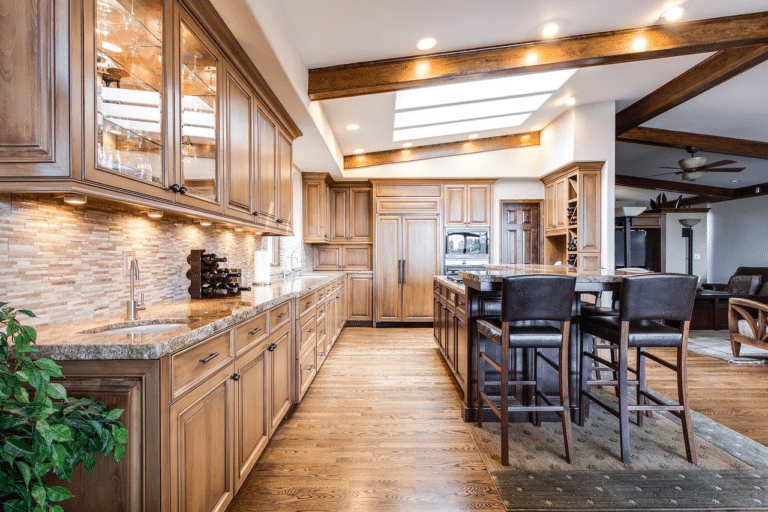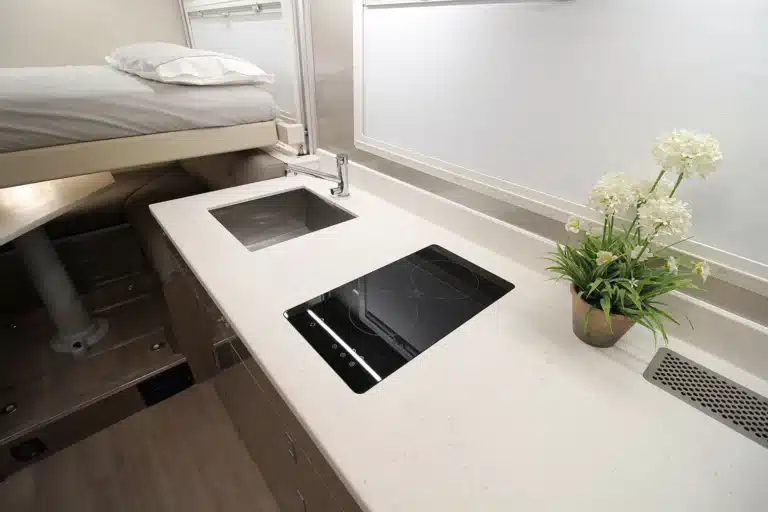Have you considered upgrading to an induction cooktop for your kitchen? Discover the benefits of faster cooking times, energy efficiency, and enhanced safety features in our latest blog post. Learn about the potential drawbacks, such as the need for induction-compatible cookware and higher initial costs.
Find out how induction cooktops stack up against traditional gas and electric options, and determine if it’s the right choice for your kitchen setup and cooking style. Explore more on the pros and cons of induction cooktops to make an informed decision.

Benefits of Induction Cooktops

Induction cooktops have become increasingly popular in modern kitchens due to their numerous benefits compared to traditional gas or electric cooktops. Let’s take a closer look at some of the key advantages of induction cooktops.
Faster Cooking Times
One of the most significant benefits of induction cooktops is their ability to heat up and cook food faster than gas or electric cooktops. This is because induction cooktops use electromagnetic energy to directly heat the cookware, resulting in quicker cooking times and efficient heat transfer.
Energy Efficiency
Another major advantage of induction cooktops is their high energy efficiency. Since heat is generated directly in the cookware, there is minimal heat loss during the cooking process. This not only helps in reducing cooking times but also leads to potential savings on utility bills in the long run.
Enhanced Safety Features
Induction cooktops come with enhanced safety features that make them a popular choice for many households. The cooktop surface remains relatively cool to the touch during cooking, reducing the risk of burns. Additionally, most induction cooktops are equipped with automatic shutoffs that turn off the heat when no cookware is detected, adding an extra layer of safety.
Precise Temperature Control
Induction cooktops offer precise temperature control, allowing for a more consistent cooking experience. With the ability to adjust the temperature quickly and accurately, it becomes easier to achieve desired cooking results. This level of control is particularly useful for tasks that require precise temperature settings, such as melting chocolate or simmering delicate sauces.
Drawbacks of Induction Cooktops

While there are many benefits to using an induction cooktop, there are also some drawbacks that you should consider before making the switch. It’s important to weigh the pros and cons to determine if an induction cooktop is the right choice for your kitchen.
Induction-Compatible Cookware Requirement
One of the main drawbacks of induction cooktops is the requirement for induction-compatible cookware. Traditional pots and pans made of materials such as aluminum or copper will not work on an induction cooktop, as they are not magnetic. This means that you may need to invest in new cookware if you make the switch to an induction cooktop, adding to the overall cost.
Potential for Higher Initial Costs
Induction cooktops can also have a higher initial cost compared to traditional gas or electric cooktops. The advanced technology and features of induction cooktops can drive up the price, so it’s important to consider your budget when making a decision. While the potential energy savings over time may offset this initial cost, it’s something to keep in mind.
Need for Professional Installation
Another drawback of induction cooktops is the possible need for professional installation. Installing an induction cooktop may require additional electrical work, such as upgrading wiring or adding a dedicated circuit. This can add to the overall cost of the cooktop, so it’s important to factor in installation expenses when budgeting for your new appliance.
Noise Generation
One common complaint about induction cooktops is the noise they generate during use, especially at higher power levels. The electromagnetic forces at work in an induction cooktop can produce a humming or buzzing sound, which some users find disruptive. If noise sensitivity is a concern for you, it’s worth considering whether the potential noise levels of an induction cooktop would be a problem in your kitchen.
Comparing Induction Cooktops to Traditional Cooktops
When considering upgrading your kitchen appliances, one of the key decisions you may face is choosing between an induction cooktop and a traditional gas or electric cooktop. Each option has its own set of pros and cons, so it’s important to weigh the differences before making a decision.
Price, Performance, and Energy Efficiency
One of the most significant factors to consider when comparing induction cooktops to traditional cooktops is the price point. Induction cooktops tend to have a higher initial cost compared to gas or electric cooktops. However, they can potentially save you money in the long run due to their energy efficiency. Induction cooktops are known for their faster cooking times and precise temperature control, which can lead to less energy consumption and lower utility bills over time.

On the other hand, traditional gas and electric cooktops may come at a lower price point initially, but they are generally less energy-efficient than their induction counterparts. Gas cooktops, in particular, can be more costly to operate due to the fluctuating prices of natural gas. Electric cooktops are more predictable in terms of energy costs, but they may not offer the same level of control and efficiency as induction cooktops.
Suitability for Different Cooking Styles and Kitchen Setups
Another factor to consider when comparing induction cooktops to traditional cooktops is how well each type suits your cooking style and kitchen setup. Induction cooktops are preferred by many chefs and home cooks for their precise temperature control and quick response times. This makes them ideal for tasks that require a high level of precision, such as melting chocolate or simmering delicate sauces.
Additionally, induction cooktops are known for their safety features, such as cooler surfaces and automatic shutoffs, making them a good choice for households with young children or elderly family members. However, it’s worth noting that some induction cooktops can generate noise during use, especially at higher power levels, which may be a consideration for those who prefer a quieter cooking experience.

On the other hand, traditional gas and electric cooktops have their own advantages. Gas cooktops are prized by many professional chefs for their precise control over heat levels and ability to char and sear foods quickly. Electric cooktops are known for their reliability and ease of cleaning, making them a popular choice for home cooks who value convenience.
Ultimately, the decision between an induction cooktop and a traditional cooktop comes down to your personal preferences, budget, and cooking habits. By considering the price, performance, and energy efficiency of each type of cooktop, as well as how well they suit your cooking style and kitchen setup, you can make an informed choice that will enhance your culinary experience for years to come.
Is an Induction Cooktop Right for You?
Factors to Consider
When deciding whether an induction cooktop is the right choice for your kitchen, there are several factors to take into consideration. One of the main advantages of induction cooktops is their faster cooking times compared to gas or electric cooktops. If you value efficiency and convenience in the kitchen, an induction cooktop may be a perfect fit for you.
Energy efficiency is another key benefit of induction cooktops, which can lead to potential savings on your utility bills in the long run. If you are looking to reduce your energy consumption and lower your monthly expenses, an induction cooktop is worth considering.

Enhanced safety features, such as cooler surfaces and automatic shutoffs, make induction cooktops a popular choice for families with young children or anyone concerned about kitchen safety. If safety is a top priority for you, an induction cooktop might be the best option.
However, there are some drawbacks to consider as well. Induction cooktops require induction-compatible cookware, which can be an added expense if you don’t already own the right pots and pans. Additionally, the initial cost of an induction cooktop may be higher than traditional gas or electric cooktops, and professional installation may be necessary.
Finally, noise generation during use, especially at higher power levels, is another potential drawback of induction cooktops to keep in mind. If you are sensitive to noise in the kitchen or prefer a quieter cooking experience, you may want to factor this into your decision-making process.
Further Research
Before making a decision about whether an induction cooktop is right for you, it’s important to do your research and gather all the necessary information. There are many resources available online and in stores that can help you compare different cooktop options, understand the installation process, and learn more about induction cookware requirements.

By taking the time to educate yourself about the pros and cons of induction cooktops, you can make an informed decision that meets your specific needs and preferences. Whether you prioritize speed, energy efficiency, safety, or noise levels in the kitchen, there is an induction cooktop out there that is perfect for you.
Summary
When it comes to choosing an induction cooktop, weighing the pros and cons is crucial. From faster cooking times to potential savings on your utility bills, induction cooktops offer some great benefits.
However, keep in mind the need for induction-compatible cookware and the possibility of higher initial costs. Consider your budget, cooking habits, and kitchen layout before making a decision. Do your research and you’ll be cooking up a storm in no time!








